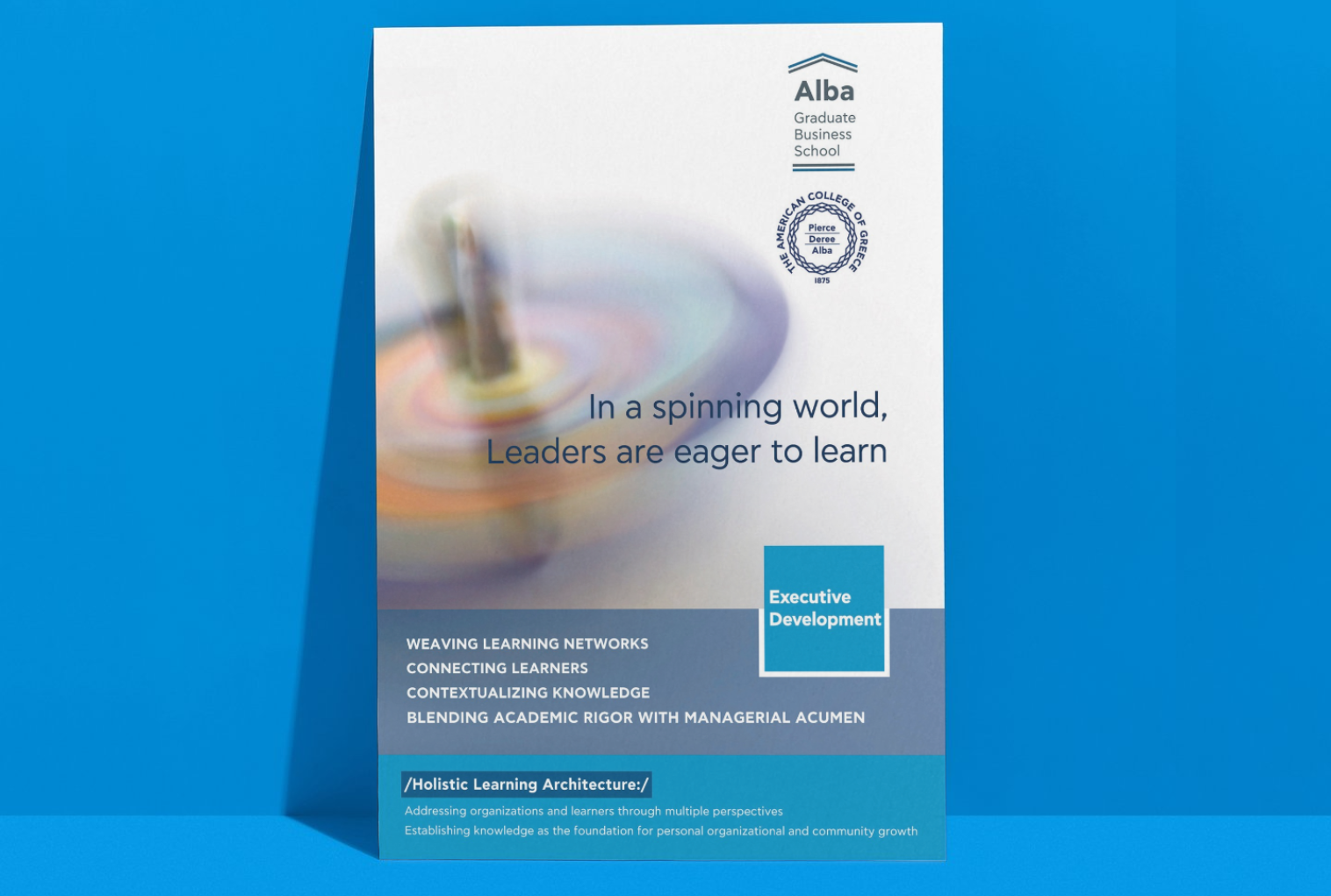New Jobs, New Skills - Alba at Economist Conference in Athens
“What are the new jobs?” “How will AI affect the market and our lives?” “Are we ready to adapt?” Those were some of the few topics discussed in the recent economist event titled «Α world in Transition: New Jobs, new skills», that took place on Friday March 9th at Megaron, Athens Concert Hall.
The conference, organized with the academic support of the Alba Graduate Business School, The American College of Greece, featured distinguished speakers from Greece and abroad, who took a penetrating look into the future based on their own perspective and experience.
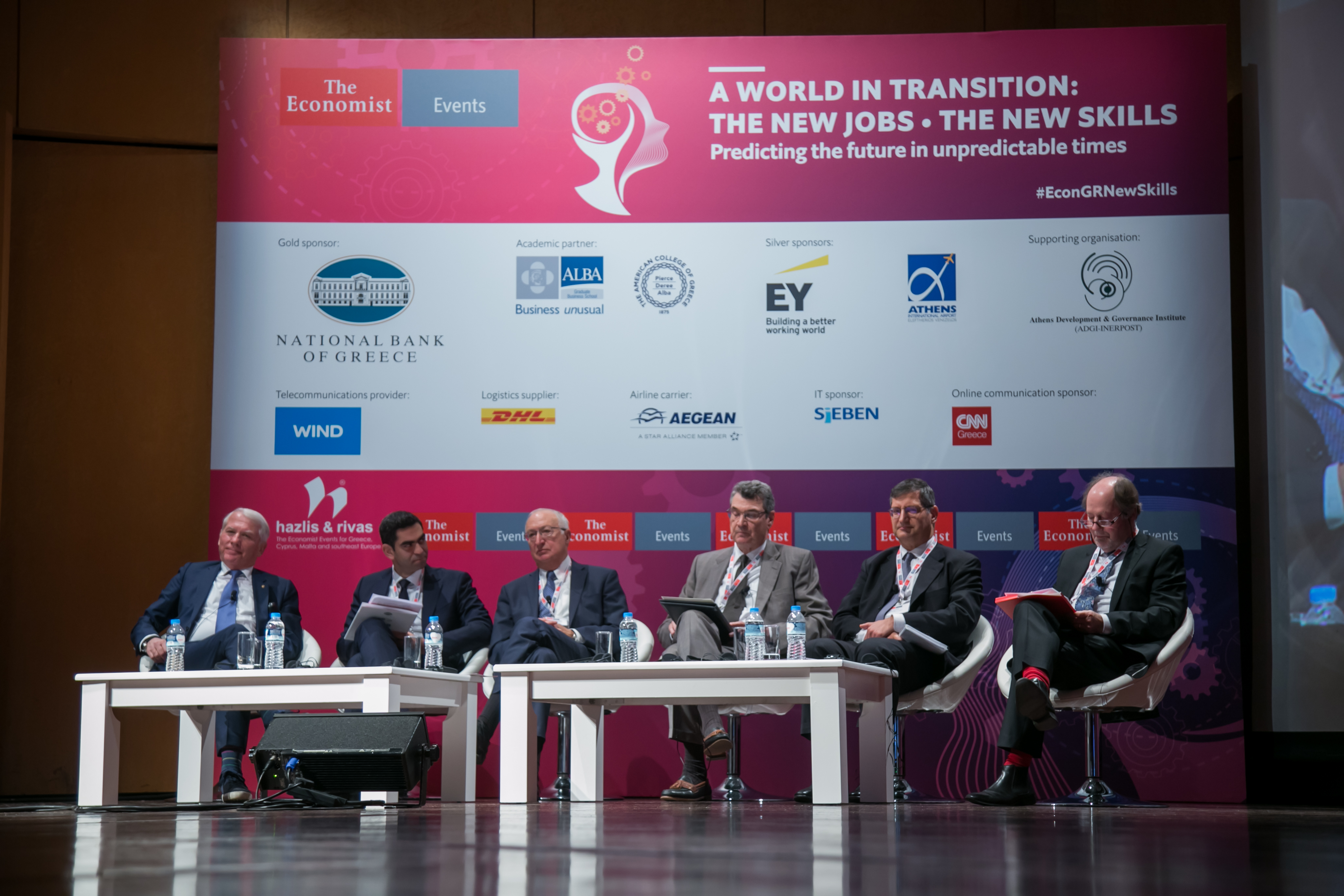
During his welcome remarks, Dr. Kostas Axarloglou, Dean of Alba noted that "The technological advances that up until yesterday were seen as ‘science fiction’ are now the reality." "The way we work will never be the same, the skills we need are dramatically different, changes and evolution in the society happen much faster than ever before”. He also pointed out that “Now more than ever the young generation faces a new challenge: to disrupt themselves through learning and immerse themselves in to a disruptive world”
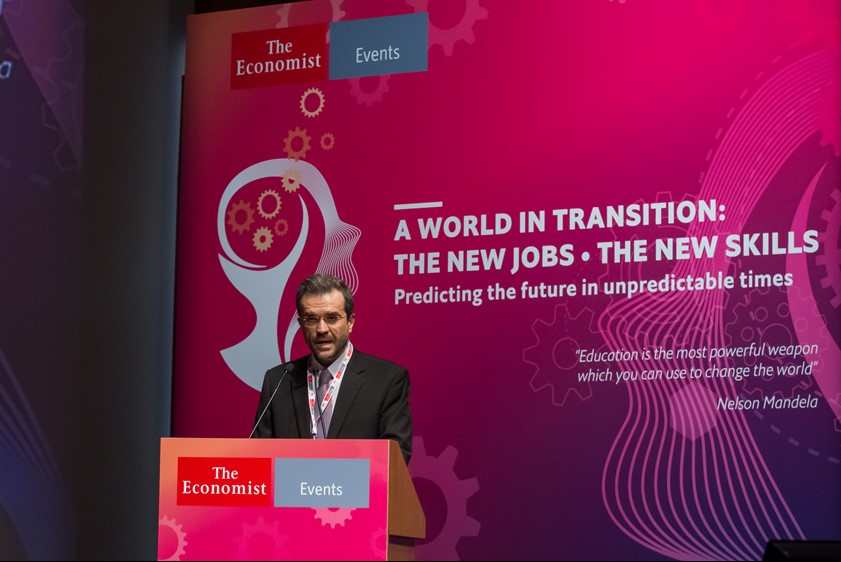
Whilst answering the crucial question of whether we are ready as a country to adapt to the drastic upcoming changes Dr. David G. Horner, President of the American College of Greece advocated that “ The ‘global higher education river’ flows swiftly; therefore adaptability is foundational to creating ‘distinctive and sustainable value’ for students and the broader society. If in the future the Greek higher education system is able to align itself with the expectations of the world’s global educational citizens, then Greek higher education could join tourism as a major driver of the Greek economy. ACG’s experience over the last ten years not only proves that such alignment is possible but also illuminates at least some of the path that, if followed, will assure success.
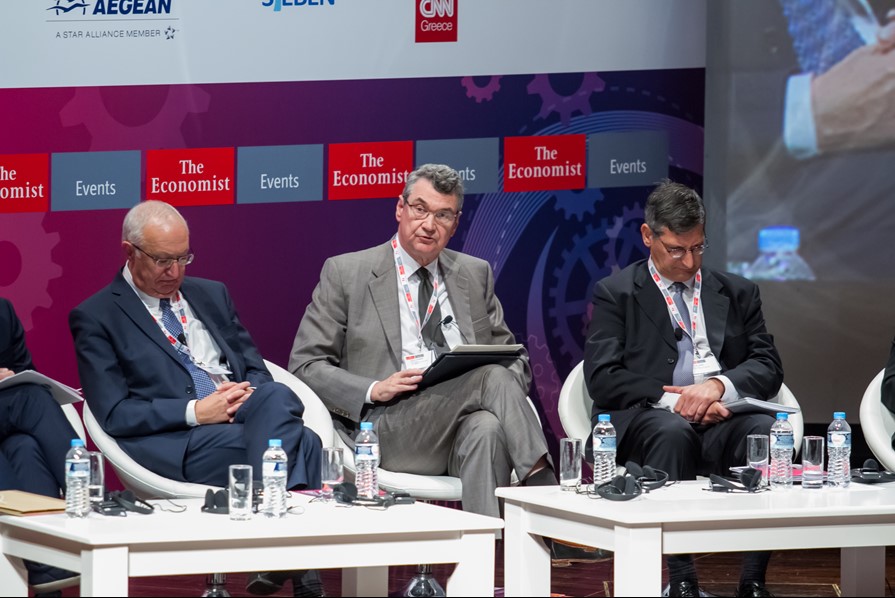
Dr. Nikos Mylonopoulos, Associate Professor of Digital Business, who participated in the panel “How could the new jobs affect unemployment” underlined that “ What we know, and we know for sure since it is already happening, is that reality will be virtual, relations -commercial, social- will be digital, and most decisions will be taken by computers. In this environment, we need to adapt and, as Sal Khan, founder of Khan Academy, rightly observes, we need to look into ways technology will help people be more humane. So that technology works with people and for people and not vice versa.”
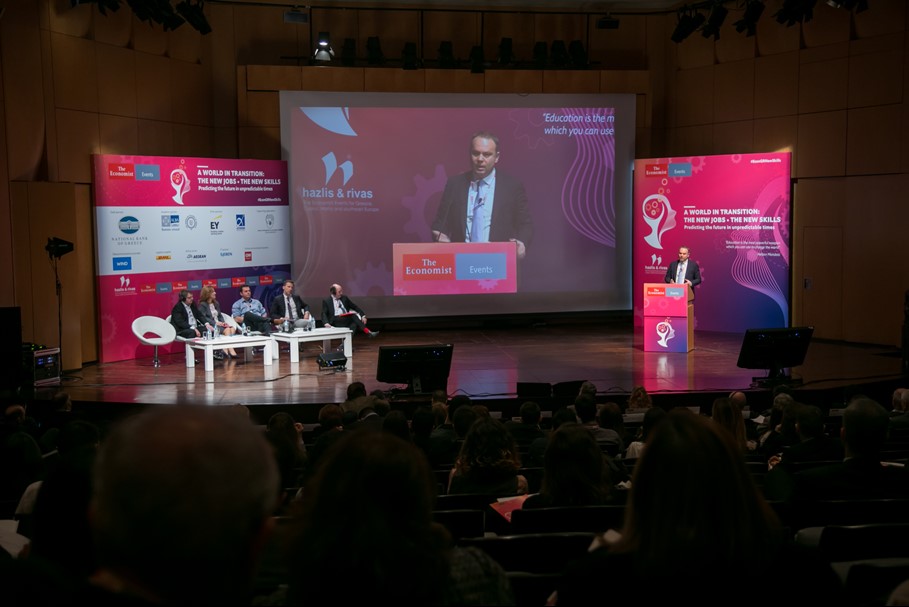
On the burning issues of brain drain , Dr. Kyriakos Kyriakopoulos, Professor of Strategy & Marketing & Associate Dean of Enrolments commented that “ It is estimated that the 500,000 who left cost Greece more than 17 billion, or 10% of its GDP if we take into account the investment of the state and the society in educating these people. Being the most dynamic and educated part of the society, they fuel growth in the most promising filed of business opportunities today, the New Economy of Knowledge. “ and he concluded that in order to reverse the brain drain “A precondition is that we take seriously our civic duty to rebuild core institutions, impartial and effective justice, stable and investment- centric tax system, and generally a state that encourages , not punishes entrepreneurship especially in areas of research and new technology.”
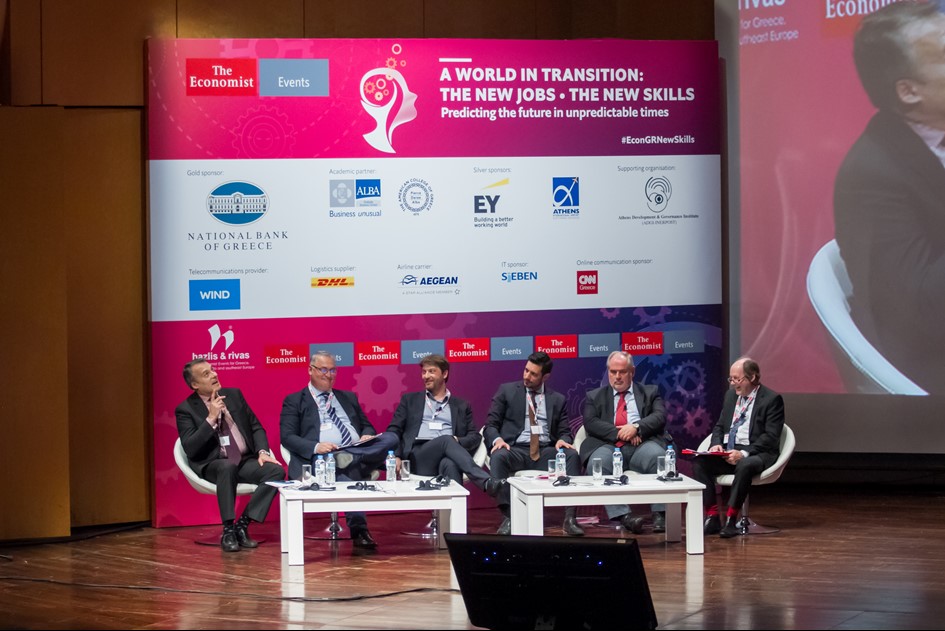
The goal of the conference, which was met to the fullest, was to become a think tank, especially for young people and for those who want to get the best orientation on the factors shaping the current reality.
The results of the online voting following each panel discussions can be found here


